MIT Mathematics (original) (raw)
MIT Mathematics Homepage
2025 Simons Lecture Series
This spring, we welcome two professors from the École Polytechnique Fédérale de Lausanne to our annual Simons Lecture Series.
Maryna Viazovska | April 29 - May 1, 2025 (Date Changed)
École Polytechnique Fédérale de Lausanne
The Sphere Packing Problem
- April 29: General overview
- April 30: Random sphere packings with symmetries
- May 1: Ideal lattice packings and subconvexity bounds II
Thomas Vidick | May 12-14, 2025
École Polytechnique Fédérale de Lausanne
Surprises in Quantum Complexity Theory
- May 12: Some complexity challenges from quantum information
- May 13: Entanglement, interactive proofs, and approximability
- May 14: Entanglement, error-correcting codes, and proofs
Each day, a reception will be held at 4:00pm in Room 2-290, followed by the 4:30pm lecture in Room 2-190.
This annual lecture series features presentations by top mathematicians. Many thanks to the late Jim Simons and his wife, Marilyn Simons, for their continued financial support of these lectures.
Latest News
Lior Alon Selected for School of Science Infinite Expansion Award
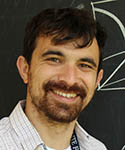
Instructor Lior Alon is one of nine postdocs and research scientists to receive the School of Science’s 2025 Infinite Expansion Award, which highlights extraordinary members of the MIT community.
Lior was nominated by John Urschel, who wrote, “I find that Lior revels in learning about different areas of mathematics, in particular, how his expertise can help others, and vice versa.”
Lior was previously a postdoctoral researcher hosted by David Jerison, as part of the Simons collaboration on localization of waves. His research lies within mathematical physics, and intersects with various mathematical disciplines, including Fourier Analysis, Spectral Geometry, Graph Theory, Morse Theory, Real Algebraic Geometry, Dynamics, and Number Theory.
Congratulations, Lior!
Lusztig Receives Basic Science Lifetime Award
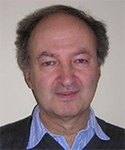
George Lusztig has received a 2025 Basic Science Lifetime Award at the 2025 International Congress of Basic Science (ICBS 2025).
He was recognized for "his unparalleled contributions to representation theory, and the profound influence of the theory of Deligne–Lusztig varieties, and Kazhdan–Lusztig theory."
Congratulations, George!
Henry Cohn Receives 2024 School of Science Undergraduate Teaching Prize
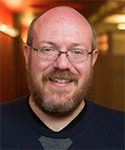
Henry Cohn ’95 will receive the 2024 School of Science Undergraduate Teaching Prize for his dedication to teaching.
Henry was recognized for teaching 18.510 and 18.701. Nominators highlighted “his engaging instruction and his ability to make a difficult class rewarding and fun.”
The School of Science awards Teaching Prizes for Graduate and Undergraduate Education to faculty members who are nominated by students and colleagues for their demonstrated excellence in teaching.
Past recipients include Michael Artin, Denis Auroux, Jonathan Kelner '05, PhD '06, Arthur Mattuck, William Minicozzi, James Munkres, Bjorn Poonen, Hartley Rogers, and Alar Toomre ‘57.
Congratulations, Henry!
Scott Sheffield Receives Teaching with Digital Technology Award
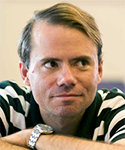
Leighton Family Professor of Mathematics Scott Sheffield is among seven winners of the 2025 Teaching with Digital Technology Awards for using digital technology to improve teaching and learning at MIT.
The student-nominated Teaching with Digital Technology Awards, for instructors who have effectively used digital technology to improve teaching and learning at MIT, are co-sponsored by Open Learning and the Office of the Vice Chancellor. This year, students submitted 88 nominations. The winners will be honored at a celebratory luncheon in May.
Past Department recipients are professors Steven Johnson ’95, PhD ’01 in 2022, Semyon Dyatlov and Jonathan Kelner SM ’05, PhD ’06 in 2020, and former lecturer Jerry Orloff PhD ’85 in 2021.
Congratulations, Scott!
Alan Edelman Is Named 2024 AAAS Fellow
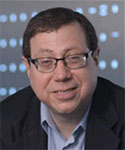
Alan Edelman is recognized as a 2024 American Association for the Advancement of Science (AAAS) Fellow for distinguished contributions and outstanding breakthroughs in high-performance computing, linear algebra, random matrix theory, computational science, and in particular for the development of the Julia programming language.
The 2024 Fellows class of 471 includes scientists, engineers, and innovators recognized for their scientifically and socially distinguished achievements.
Congratulations, Alan!